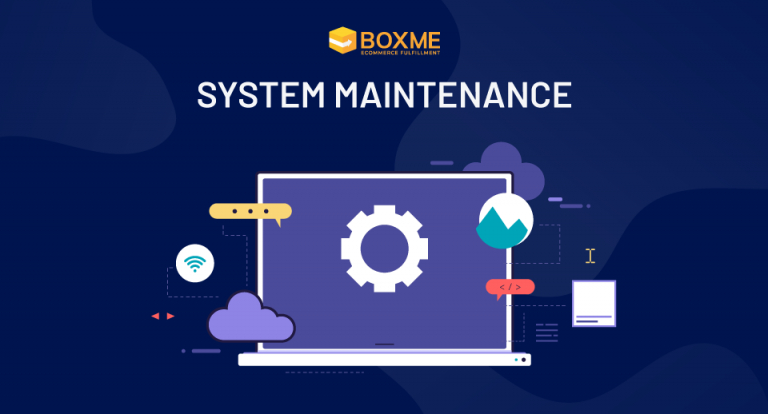In 2019, the Malaysian e-commerce economy was booming with unprecedented growth having generated a revenue of US$3.68 billion with a prediction for annual market growth to reach 11.8% by 2023, as reported by statistics portal Statista. However in 2020, e-commerce in Malaysia accelerated a lot more than predicted, partly thanks to the coronavirus outbreak and the subsequent Movement Control Order (MCO) which forced the majority of Malaysians to stay at home to prevent the spread of the infectious virus.
With more Malaysians going online to do their shopping, businesses in the country are starting to adapt themselves to the online platform, seeing now the importance of digitising their businesses. SMEs and large brick-and-mortar businesses have made the move to launch their own e-commerce websites or partner with established online marketplaces to set up an online presence.
The massive change in shopping habits drastically influenced the online traffic to various marketplaces to shift. With emerging marketplaces popping up during the coronavirus outbreak, what are some of the new online contenders, and what websites are getting the most traffic? Let’s find out.

Shopee
Estimated monthly visitors: 37,943,800
Undeniably, Shopee is the current most popular e-commerce website in Malaysia. Throughout the year, Shopee had launched monthly sale campaigns such as the 3.3 Mega Sale, 7.7 Mid-Year Sale, and the most successful 11.11 Big Sale. Currently happening is the Shopee 12.12 Birthday Sale to celebrate the inception of the online marketplace, perfect to close the year 2020 with amazing deals for online shoppers.
Shopee also rolled out a referral program to get more people onto their platform. Existing shoppers who send a referral code to get new shoppers to create an account and pay for their first order on Shopee would earn 1,000 Shopee coins. The Shopee coins can in turn be used as a form of payment. Aside from that, Shopee has also teamed up with Maybank (Malayan Banking Berhad) to release the Maybank Shopee Credit Card. When using the credit card for payments, the card holder will earn Shopee Coins in their Shopee account.
To support local businesses, Shopee launched their RM15 million Seller Support Package to help small to medium businesses (SME) to digitise their brand, and other struggling existing online sellers to improve their online presence and overcome significant revenue loss from low sales volumes.
> Read more: Guides on how to build a successful Shopee business model in 6 steps
Lazada
Estimated monthly visitors: 13,814,900
One of the Malaysian e-commerce marketplace pioneers, Lazada is the second most popular shopping platform. This year, Lazada focused their efforts on supporting the government’s initiatives to aid local micro and small and medium enterprises (MSME) and Malaysia’s economic recovery that were affected by the coronavirus pandemic. They launched their RM10 million Pakej Kedai Pintar programme to help digitise businesses and learn techniques to sell online. The campaign proved to be successful with more than 17,000 new small businesses onboard onto Lazada’s platform, and an overall growth of over 110% in sales due to the initiative.
Lazada launched a few sales campaigns which aimed to promote local sellers and products. Buy Malaysia and Shop Malaysia Online promoted various local businesses and SMEs with the goal to also boost the country’s digital-led economic recovery.
Read more: Become a Top Seller on Lazada: Tips and Tricks
PG Mall
Estimated monthly visitors: 4,540,800
Established in 2017, PG Mall aspires to grow and push homegrown brands to the global market. Their e-commerce platform was founded in 2018 with more than 500,000 customers across Southeast Asia. Despite being a new player in the industry, PG Mall saw an impressive revenue growth and has become the third most visited website in Malaysia. Thanks to the increase of online shopping habits, PG Mall was able to come out into the spotlight just behind Shopee and Lazada, making themselves a serious market contender in the Malaysian e-commerce marketplace scene.
Zalora
Estimated monthly visitors: 1,008,100
Zalora is Asia’s leading online fashion marketplace, and also one of the pioneer e-commerce websites in Malaysia. Founded in early 2012, the website primarily focuses on offering an extensive collection of over 500 top local and international brands and designer items for women’s fashion apparel, shoes, accessories and beauty products.
During Malaysia’s Movement Control Order (MCO), Zalora added over 3,000 essential supplies including food, home and health products, hygiene and pharmaceutical goods to their platform to help communities and customers during the coronavirus pandemic. The initiative by Zalora also extends to working to assist volunteer relief organisation Mercy Malaysia in fundraising to support frontline workers and vulnerable communities affected by the infectious virus.
Recently, Zalora announced that they will be looking into expanding its presence beyond the urban areas as a number of their users are from the outskirts and remote areas have increased during the pandemic this year.
Lelong.my
Estimated monthly visitors: 586,500
Lelong.my has been around since 1998 making it one of the longest running Malaysian e-commerce websites in the country. The local marketplace is home to more than 10,000 homegrown merchants with over 1.3 million products ranging from computers, mobile phones, gadgets, home appliances, fashion and accessories, and daily necessities like frozen food. Despite not having a strong online presence as of late, Lelong.my is still one of the top websites that Malaysians visit for online shopping.
In 2020, Lelong.my acquired Mataris Agency, a digital marketing agency based in the country to pave the way to strengthen their pioneer position in the sector and raise their brand presence and awareness among consumers and sellers in Malaysia.
Read more: 8 e-commerce platforms in Malaysia to sell on
Astro GoShop
Estimated monthly visitors: 575,900
Astro Malaysia Holdings Berhad, Malaysia’s leading multi-platform media and entertainment company, and GS Home Shopping Inc., a leading Korean multimedia retailer announced the launch of Astro GoShop back in 2015. GoShop is Astro’s first attempt into the e-commerce sector, enabling Malaysians to shop anytime and anywhere via mobile, tablet and PC. A channel on Astro TV with the same name also runs for 24 hours tying into the e-commerce platform.
This year, Astro’s e-commerce platform jumped onto the top 10 most visited websites in Malaysia primarily due to the advantage of having a wider audience reach via their TV platform. Most existing viewers would go to the GoShop TV channel before moving onto the e-commerce platform to purchase the products that are sold. Astro GoShop also offers the option of shopping over the phone. This ensures that customers who are not tech-savvy or from rural areas will also be able to shop from their platform.
Overview
The Malaysian e-commerce economy is still steadily growing and coming out stronger than ever in 2020. Like a lotus flower blooming from a muddy pond, many e-commerce marketplaces and companies were able to grow and flourish despite the difficulties suffered in other sectors from the impact of the global coronavirus pandemic.
With the rising preference for online shopping among Malaysia’s increasingly tech-savvy youth population, as well as the older age groups that adapted to online shopping, Malaysia will most certainly be the dominating e-commerce market in Southeast Asia.
More Readings
> Malaysia’s Ecommerce Economy Thrives During COVID-19
> Malaysia, Your Next E-Commerce Destination
> E-commerce strategies in Malaysia: Cross-border Shipping or Local Distribution?










